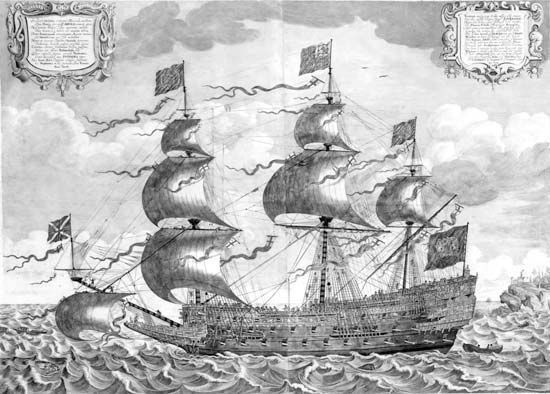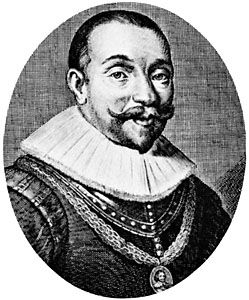Anglo-Dutch Wars
- Also called:
- Dutch Wars
- Dutch:
- Engelse Oorlogen
- Date:
- March 1665 - July 1667
- 1672 - 1674
- July 8, 1652 - April 1654
- December 20, 1780 - May 1784
- Location:
- Chatham
- Dogger Bank
- East Indies
- West Indies
- England
- Participants:
- Dutch Republic
- France
- England
- Context:
- Dutch War
Anglo-Dutch Wars, four 17th- and 18th-century naval conflicts between England and the Dutch Republic. The first three wars, stemming from commercial rivalry, established England’s naval might, and the last, arising from Dutch interference in the American Revolution, spelled the end of the republic’s position as a world power.
The First Anglo-Dutch War (1652–54) began during a tense period following England’s institution of the 1651 Navigation Act, which was aimed at barring the Dutch from involvement in English sea trade. An incident in May 1652 resulting in the defeat of a Dutch force under Adm. Maarten Tromp led England to declare war on July 8 (June 28, old style). The Dutch under Tromp won a clear victory off Dungeness in December, but most of the major engagements of the following year were won by the larger and better armed men-of-war of England. In the summer of 1653 off Texel (Terheide), in the last battle of the war, the Dutch were defeated and Tromp killed, with both sides suffering heavy losses. The war was ended by the Treaty of Westminster (April 1654).
The commercial rivalry of the two nations again led to war in 1665 (the Second Anglo-Dutch War of 1665–67), after hostilities had begun the previous year and the English had already captured New Amsterdam (New York). England declared war in March 1665 and won a decisive victory over the Dutch off Lowestoft in June. After the destruction of the Dutch flagship, only hasty action by Vice Adm. Cornelis Tromp, Maarten Tromp’s son, prevented the defeat at Lowestoft from descending into a total rout. The English failed to capitalize on their initial success, however, and most subsequent battles (which occurred in the following year) were won by the Dutch. England’s ally, the principality of Münster, sent troops into Dutch territory in 1665 but was forced out of the war in the following year by France, which took the Dutch side in January 1666. A plague epidemic in 1665 and the Great Fire of London in 1666 contributed to England’s difficulties, which culminated in the destruction of its docked fleet by the Dutch at Chatham in June 1667. The war was ended the following month by the Treaty of Breda.
The Third Anglo-Dutch War (1672–74) formed a part of the general European war of 1672–78 (see Dutch War).
England and the Dutch Republic had been allied for a century when they again went to war (the Fourth Anglo-Dutch War of 1780–84) over secret Dutch trade and negotiations with the American colonies, then in revolt against England. The English declared war on December 20, 1780, and in the following year quickly took key Dutch possessions in the West and East Indies while imposing a powerful blockade of the Dutch coast. In the only significant engagement of the war, a small Dutch force attacked a British convoy in an indecisive clash off Dogger Bank in August 1781. The republic was never able to assemble a proper fleet for combat, however. When the war ended in May 1784, the Dutch were at the nadir of their power and prestige.






















